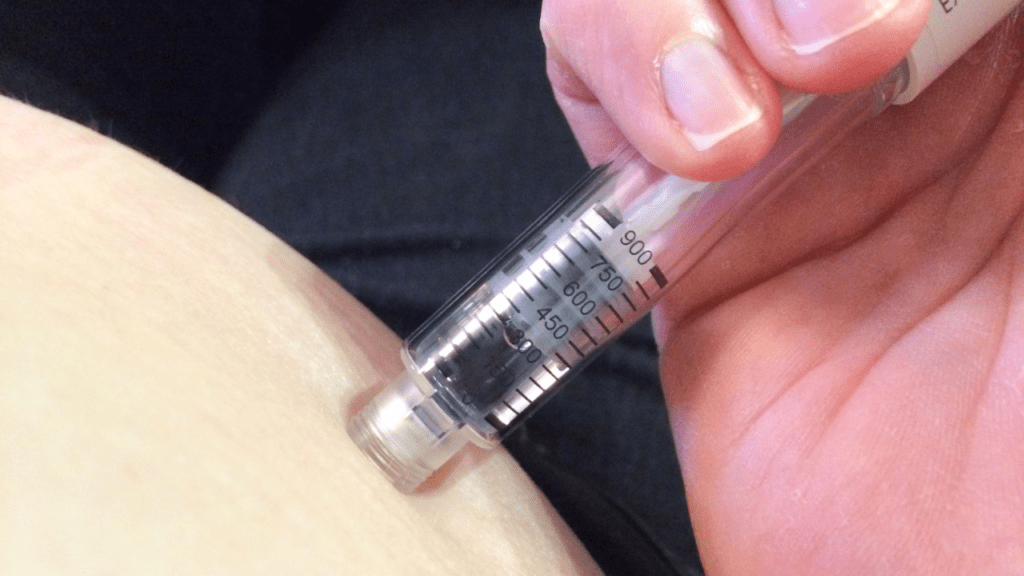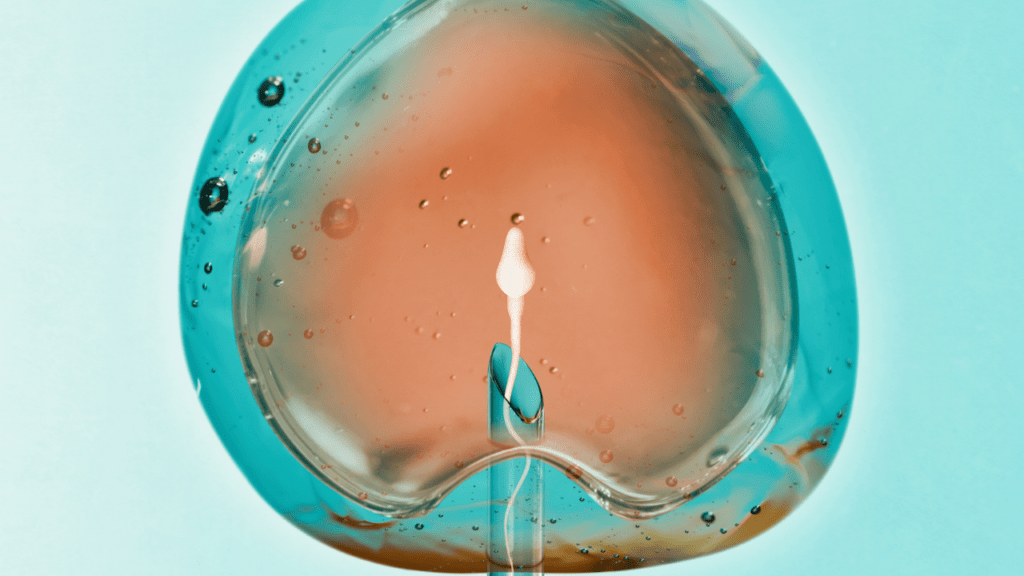The ideal fertility therapy for you will depend on your unique circumstances and reproductive requirements, thus there is no universally applicable solution. But there are a few things that might help you limit your options.
There is no one-size-fits-all fertility treatment; instead, it will depend on your particular circumstances and reproductive needs. However, there are a few factors that might assist you in reducing your alternatives.
Table of Contents
What are the different types of fertility treatments?
The most common fertility treatments include:
- Ovulation induction: In order to increase egg production, medication is used to aid the ovaries
- Intrauterine insemination (IUI): This entails injecting sperm right into the uterus around ovulation.
- In vitro fertilization (IVF): This entails taking eggs out of the ovaries, fertilizing them in a laboratory dish using sperm, and then placing the fertilized eggs back into the uterus.

Here is a brief overview of some of the most common fertility treatments
- Clomid: A fertility medication called Clomid may be able to encourage ovulation in women who don’t ovulate on a regular basis. Although it is a low-risk, reasonably priced procedure, it is not as successful as some other reproductive therapies.
- IUI: IUI entails injecting sperm right into the uterus around ovulation. Couples who experience modest male factor infertility or unexplained infertility might consider this approach.
- IVF: The most sophisticated and intrusive fertility treatment is IVF. It entails taking eggs out of the ovaries, fertilizing them in a laboratory with sperm, and then returning the embryos to the uterus. Couples experiencing a range of infertility issues, such as blocked fallopian tubes, male factor infertility, and unexplained infertility, might consider IVF.
Which fertility treatment is most successful?
- The most effective fertility treatment is IVF, which has cycle-to-cycle pregnancy rates of up to 50%. But IVF is also the priciest fertilization procedure.
- IUI has pregnancy rates that are between 10 and 20 percent lower than IVF. IUI is less costly than IVF, though.
- Clomid has pregnancy rates that range from 5 to 10 percent every cycle, making it the least effective fertility medication. It is, however, also the most affordable fertility therapy.
Here is a summary of the pros and cons of each type of fertility treatment
| Ovulation induction | Intrauterine insemination (IUI) | In vitro fertilization (IVF) |
|---|---|---|
| Pros: affordable and straightforward to carry out | Pros: Compared to ovulation induction, success rates are greater. | Pros: Highest rates of success for all fertility procedures. |
| Cons: Compared to other reproductive therapies, success rates are lower. | Cons: More costly than ovulation induction. | Cons: The most costly fertility procedures. |

Lifestyle Changes to Improve Fertility
In addition to medical treatments, several lifestyle adjustments can increase fertility and increase the likelihood of pregnancy. These modifications include:
Maintaining a Healthy Weight: Both male and female fertility may be significantly impacted by obesity. Weight loss is frequently advised if your BMI is high in order to get you closer to a weight that is safe for conception and pregnancy.
Following a Balanced Diet: Healthy reproduction can be aided by a balanced diet high in fruits, vegetables, whole grains, and lean meats. It’s also wise to stay away from excessive amounts of coffee, alcohol, and processed meals.
Regular Exercise: By controlling hormones and lowering stress, frequent moderate physical activity might enhance fertility. On the other hand, excessive activity or rigorous training might harm fertility.
Managing Stress: Stress at a high level might mess with hormone balance and the menstrual cycle. Finding constructive coping strategies, like yoga, meditation, or counseling, can help you control your stress while going through the reproductive process.
Avoiding Tobacco, Alcohol, and Recreational Drugs: Men and women who take recreational drugs, smoke, or drink too much will have dramatically lower fertility rates. It is essential to stop these behaviors in order to improve reproductive health.
Timing Intercourse: The likelihood of conception can be raised by understanding your menstrual cycle and determining your fertile window. Finding the ideal moment for sexual activity might be assisted by using ovulation prediction kits or monitoring basal body temperature.
Fertility Treatment Options: Tailored Solutions for Every Situation
Fertility experts can suggest suitable treatments if the underlying reason for infertility has been found. Let’s examine the many fertility therapies that are offered.
1. Medications to Enhance Ovulation
Ovulation issues are frequently the root of infertility. In these circumstances, drugs may be recommended to energize the ovaries and encourage the release of eggs. Medication that is frequently taken includes:
- Clomiphene Citrate: This oral drug stimulates the release of hormones required for follicular formation, which causes ovulation to occur.
- Letrozole: Letrozole has been discovered to be an equivalent amount as efficient in promoting ovulation as clomiphene citrate.
- Gonadotropins: The ovaries can be directly stimulated by injected gonadotropins to generate more eggs, enhancing the likelihood of a successful pregnancy.
- Metformin: Metformin can modulate hormones and enhance ovulation in addition to being predominantly used to treat insulin resistance in PCOS-affected female patients.
2. Surgical Interventions to Address Structural Issues
In rare circumstances, anatomical flaws or obstructions in the reproductive organs might hinder conception. Surgery could be required to address these problems. Let’s look at a few typical surgical procedures:
- Laparoscopic Surgery: Treatments for disorders like endometriosis or the removal of fibroids, which can interfere with pregnancy, sometimes include laparoscopic surgery.
- Fallopian Tube Surgery: Surgical operations can be carried out to eliminate blockages and increase the likelihood of natural conception if fallopian tubes are obstructed or damaged.
3. Assisted Conception: Advanced Techniques for Success
Techniques for assisted conception are quite successful for couples dealing with more complicated reproductive issues. These procedures entail the handling of sperm, eggs, or embryos outside the body. Let’s explore some of the most popular assisted conception techniques:
- Intrauterine Insemination (IUI): In IUI, carefully prepared sperm are inserted directly into the uterus to increase the likelihood of fertilization.
- In Vitro Fertilization (IVF): IVF is a well-known assisted conception method in which sperm and eggs are fertilized in a lab. After that, the embryos are put into the uterus for implantation.
- Intracytoplasmic Sperm Injection (ICSI): A single sperm is directly inserted into an egg via ICSI to fertilize it. In situations of low sperm quality or male factor infertility, this method is especially helpful.
4. Donor Options: When Assisted Conception Needs a Helping Hand
Donor alternatives give people or couples an additional route to motherhood if they are unable to conceive with their own eggs or sperm. To improve the success rate of pregnancy, donor eggs or sperm can be utilized in combination with assisted reproductive technologies. It’s vital to remember that donor alternatives could change according to the ethical and legal standards in each nation.

Choosing the Right Fertility Treatment for You
Working closely with your reproductive professional is essential when choosing a fertility therapy. They will take into account a number of things, such as the primary reason for your infertility, your age, health history, and personal preferences. Together, you and your doctor may choose the best course of action for your particular set of circumstances.
Which fertility treatment is right for you?
Speak with your doctor to determine which fertility therapy is best for you. They will evaluate your unique situation and reproductive requirements before advising you on the best course of action.
Before making a decision, consider the following additional factors:
- Your partner’s fertility: Consider a more sophisticated treatment option, such as IVF, if your spouse has a major reproductive issue, such as low sperm count or poor sperm motility.
- Your age: Age can influence IVF success rates, as was previously indicated. If you are over 35, it may be best to talk about your choices with your doctor as soon as possible.
- Your financial situation: The cost of fertility treatments might be high. When selecting a choice, it’s critical to consider the expense of the recommended course of therapy.
- Your emotional readiness: Treatments for infertility can be emotionally taxing. Making sure you are emotionally ready for the trials ahead is crucial.
Conclusion
The road to dealing with infertility may be difficult and stressful. The desire to establish a family can, however, come true thanks to the multitude of fertility treatment choices that are accessible. You may travel this journey with hope and resiliency by being aware of the underlying causes of infertility, getting the right medical treatment, and caring for your mental well-being. Keep in mind that there is a supportive community waiting to help you at every step of the process. You are not alone.
Q: What factors should I consider when choosing a fertility treatment?
A: When deciding on a fertility treatment, several factors come into play. These include your age, the cause of infertility, the cost of the treatment, and your emotional readiness. It’s crucial to consult with a fertility specialist who can provide personalized guidance based on your specific circumstances.
Q: Are fertility treatments expensive?
A: Fertility treatment costs can vary widely. In general, IVF tends to be more expensive than IUI or fertility medications. It’s essential to evaluate your budget and explore financing options or insurance coverage, if available.
Q: How long does a typical fertility treatment take?
A: The duration of a fertility treatment can vary significantly depending on the specific method and individual circumstances. IVF, for instance, may involve several weeks of preparation, while IUI can be a shorter process. Your fertility specialist will provide a timeline based on your treatment plan.
Q: Are fertility treatments guaranteed to work?
A: Fertility treatments, while highly effective, do not guarantee success. Success rates can vary based on factors such as age, overall health, and the cause of infertility. It’s essential to approach fertility treatments with realistic expectations and emotional support.
Q: What should I expect during fertility treatment?
A: Fertility treatments typically involve regular monitoring, hormonal injections or medications, and medical procedures such as egg retrieval or embryo transfer. Emotional support is crucial throughout the process, and your healthcare team will guide you through each step.
Q: Are there natural alternatives to fertility treatments?
A: Some couples explore natural alternatives such as acupuncture, dietary changes, and stress reduction techniques. While these approaches may support fertility, they are not a substitute for medical treatments. It’s essential to discuss any alternative therapies with your healthcare provider.





[…] Treatments: Ovulation induction is one fertility treatment that may be suggested for women who are trying to get […]
[…] sexual intercourse. This curiosity might originate from a variety of worries or questions regarding fertility, conception, or contraceptive […]
[…] Coverage: IVF and other infertility treatments may be covered by your health insurance. Check with them to find out. Your out-of-pocket costs can […]
[…] Fertility is the ability to conceive and have a child. It is a complicated process that is regulated by several factors, including age, hormone balance, and reproductive health. Knowing When is a female most likely to be fertile is important for both couples trying to conceive and couples trying to avoid pregnancy. Timing sex during the ovulation window might help couples who are attempting to conceive. Knowing when the ovulation window is can help couples take suitable contraception. […]
[…] significantly depending on the caliber of the IVF laboratory and the level of experience of the fertility […]